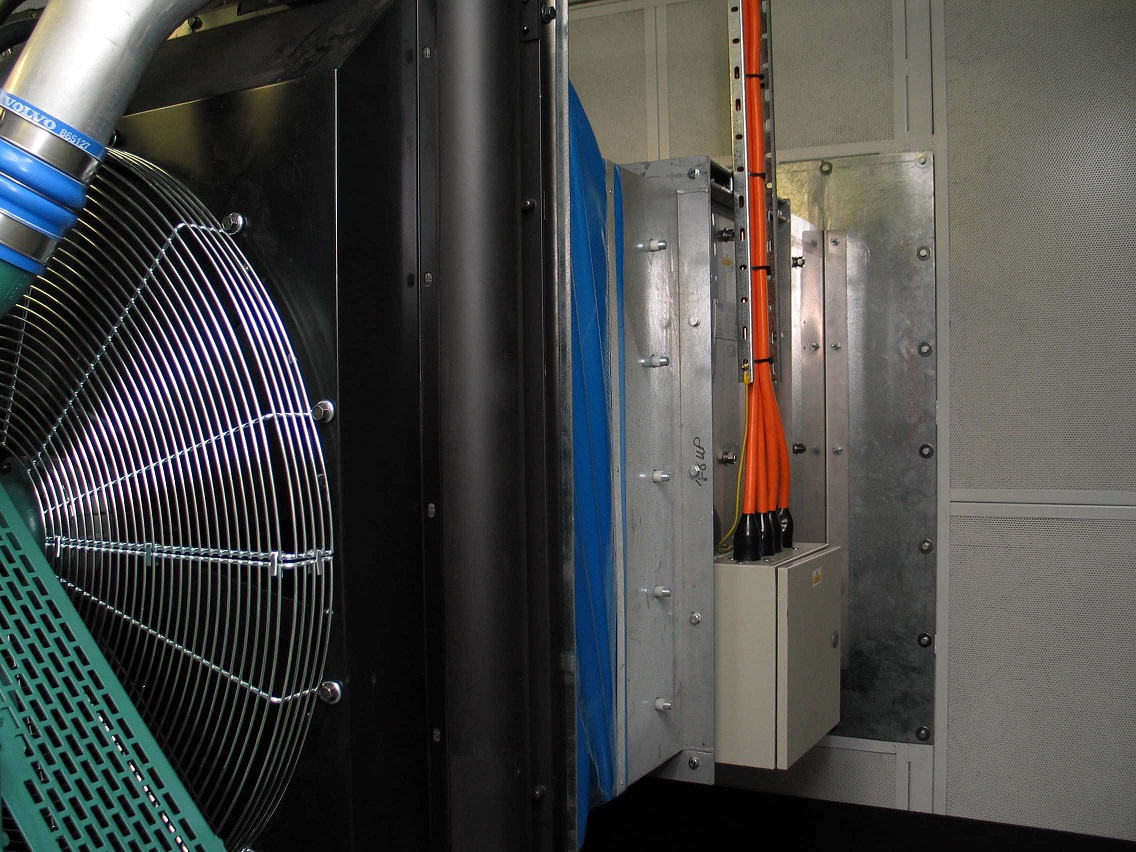London Eye - Guaranteed To Let People Down
The attraction at the centre of London's New Year's Eve fireworks, the iconic London Eye, will be guaranteed to let people down in 2020 - thanks to a back-up...
Read Full Article
Simone Bruckner explains why regular load bank testing should be a crucial part of any company’s standby strategy.
Companies in general and data centres, in particular, have become increasingly reliant on the security and continuity of their power supply.
The failure of an electrical supply network can be disastrous and so having a plan of standby or fully-redundant power supplies in place is essential. These normally come in the form of batteries, generating-sets or a combination of the two.
A battery powered uninterruptible power supply can instantaneously take over if the electricity supply from the grid fails. There would also normally be a diesel generator that would run for as long as it had a fuel source. Its purpose is to take over as medium-term supply once the battery has done the job of managing the immediate problem.
Supplying sufficient fuel to run the equipment for an extended period is the first and most basic requirement. However, the generator must also be tested regularly.
It is obviously not acceptable to interrupt the power supply to a hospital, financial centre or other critical application once a month by connecting the generator to run a test.
However, it is also not sufficient to simply turn the motor on once a month to see if it works. This could create significant problems for a diesel generator.
Diesel engines that are regularly run on very low loads become increasingly unreliable and costly to maintain. The effects include smoky exhausts, carbon build-up, fuel system problems and lubricating oil deterioration, all of which decrease reliability and add to running costs.
These consequences can be largely avoided if the set is regularly operated on a load of 20-40% of its rated power. Routine testing which includes on-load running to bring the engine, alternator and radiator up to normal working temperatures, is crucial. This offers a much higher degree of certainty that the set will perform as expected in a real power outage.
Including a fixed load bank at the time of installation is justified by the saving in maintenance costs over the generator’s life. Many large users of generating sets, particularly the water, power and telecommunications utilities, have recognised these advantages.
However, there are still countless standby generators going untested that may or may not work in the event of a power outage. If power outages were more common, the value of a standby generator and associated load bank would be more clearly understood in the industry.
For many years it has been routine for all newly-installed generating sets to have a load test during the commissioning process, to confirm the performance of the set and its ancillaries – the cooling and exhaust systems, switchgear and protection scheme. When using mobile equipment, these tests have traditionally been performed by contractors who visit the site, bringing with them a portable load bank.
However, we have recently seen instances where high profile companies have woken up to the importance of regular testing of standby power. This represents a big step forward from the days when testing would only be performed on installation.
Buying a generating set but not testing it, is like buying insurance but not making sure that your certificate is valid when you receive it. More worryingly it also means you are recognising the likelihood of failure in the electrical supply network, which is increasing as our substation and generation infrastructure ages but undermining your own preparations for it.
Simone Bruckner is MD of power resistor and load bank manufacturer, Cressall Resistors.
Picture: A 150kW radiator mounted load bank is used to test a generator.
Article written by Simone Bruckner | Published 15 June 2018
The attraction at the centre of London's New Year's Eve fireworks, the iconic London Eye, will be guaranteed to let people down in 2020 - thanks to a back-up...
Read Full ArticleThe all weather horse racing track at Chelmsford City, which predominantly features evening events, was forced to call a halt to activities on Tuesday November 13 as a...
Read Full ArticleSPIE has 'knicked' the contract for the Heathrow Terminal 5 central battery systems upgrade from under the noses of all other contenders. The deal will involve...
Read Full ArticleThe Tech Prosperity Deal between the UK and the US could present a huge growth opportunity for the facilities management sector. In this Opinion piece, Richard Sykes,...
Read Full ArticleAfter a 17-year partnership, Colt Data Centre Services has awarded Dalkia UK a new three-and-a-half-year FM contract. Dalkia UK will continue to provide critical...
Read Full ArticleEmcor UK has added data centre operations to its facilities management services capabilities. A new data centre team, led by Steve Clifford, Director of Data Centres,...
Read Full ArticleA new apprenticeship scheme to help develop skilled professionals for the data centre industry has launched. The collaboration between real estate company CBRE and...
Read Full ArticlePlanning has been submitted for two new data centres in the south-east of England. A 74-acre site close to Heathrow Airport has been earmarked to house one of the most...
Read Full ArticleThe government believes that fast tracking planning approvals will help to expand the UK’s domestic AI infrastructure. Proposed “AI Growth...
Read Full ArticleCBRE will provide hard and soft FM services across Kao Data's UK data centre portfolio. Kao Data has facilities east and west of London, and is behind...
Read Full Article